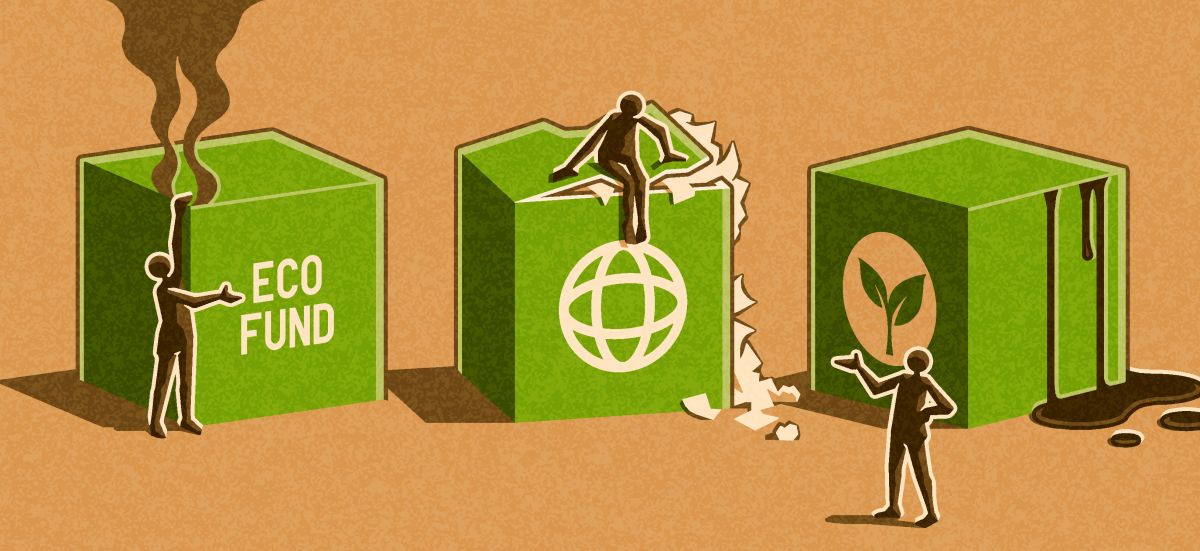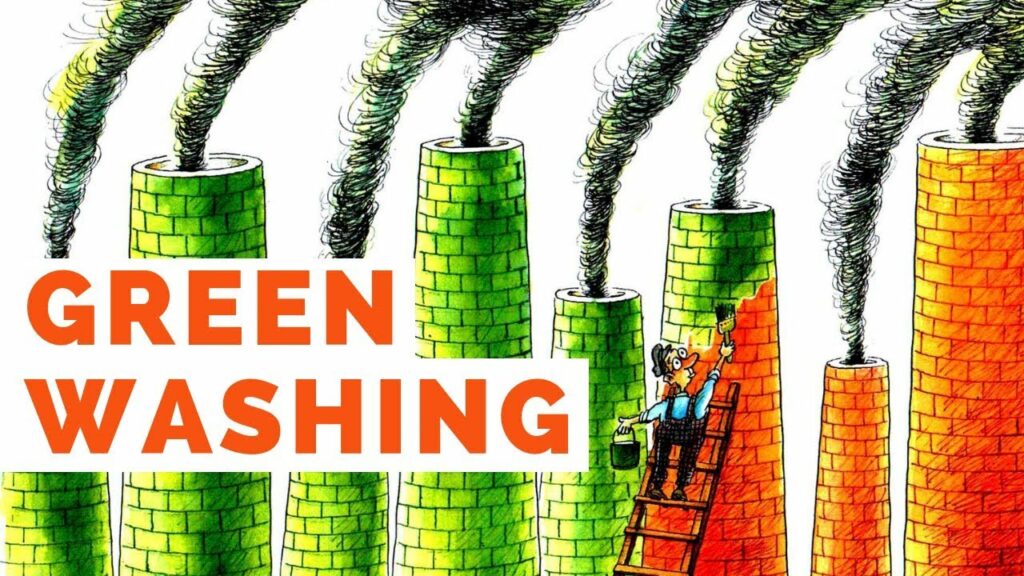By Panagiota Katsaveli,
“Eco-friendly”, “100% natural”, “Don’t let it go to waste!” I am pretty sure everyone has encountered these phrases in ads promoted by companies ensuring their product will help save the environment. For many years, carbon emissions and pollution have contributed to the acceleration of global warming and the enhancement of climate change, the decomposition of our planet. This has created the need for action to be taken and people all over the world have been advocating for companies and governments to take measures towards this direction; saving the environment. Since environmentally friendly solutions are more expensive to adapt to, greenwashing has been the way to go! This way, both companies and consumers are left satisfied, but are they all aware of the choices they are making?
The term greenwashing was invented by the American environmentalist, Jay Westerveld, in the 1980s following his stay at a hotel in which they made guests reuse their towels in order to reduce their administration costs and they presented this practice as a tool that was helping in saving the environment. Greenwashing comes in two distinct forms: the first being about companies pretending to be eco-friendly through the use of various products that are not necessarily eco-friendly; and the second about companies using grand gestures to hide their not so environmentally-friendly practices. The phenomenon is known amongst companies in the business world and many corporations, like H&M and Nestle, have gained notoriety by using it. For instance, H&M and other clothing companies exploit the vagueness of “green” terminology to appear more sustainable and sell more products. They created a “conscious clothing collection” failing to provide information about its impact on the planet, hence tricking consumers into buying these clothes whilst keeping them under the illusion of helping. At the same time, the fast fashion industry is one of the planet’s biggest polluters and not a lot is being done to avert its problematic rise.
Even though greenwashing is a commonly used practice for corporations, it is not always easy to identify it. It is important that, before we purchase items that hold the claim of being beneficial to the environment, we have conducted some essential research. If the advertisements sound too good to be true or if it is difficult to fact-check information about the product, chances are that greenwashing is in play. Moreover, if the company is not proactive about environmental issues but uses it as a defence against customers’ complaints or demands and if there is an immense use of graphics that depict nature and plants, it is likely that not much effort has been made to help the environment in a practical way. The extensive use of words like eco-friendly, natural, organic, sustainable or x% biodegradable (which is not possible since products are either completely degradable or not at all) is common by marketers in their effort to appeal to prospective buyers. Yet, these are merely the most common tricks used by advertisers to appeal to their audience while many more less obvious ones are at work. Before trusting any company in applying the most beneficial methods to protect the planet, we should conduct research in order to be aware of all the dangers.
Besides greenwashing, green marketing is another term used in the business world in relation to environmentally friendly campaigns and it is essential to know the difference between the two since there is a fine line separating them. As we can understand so far, greenwashing does not reflect the practical efforts being made to save our planet. On the far opposite end of that, green marketing consists of all activities designated to facilitate the interaction between humans and the environment limiting the detrimental impact of exploiting natural resources and polluting nature. Products and services provided by such companies are based on legitimate environmental positives. Considering that millennials and Gen Z, who constitute a huge consumer segment, are highly-focused on going green, green marketing constructs a moral obligation for companies to be socially responsible while staying competitive in the capitalist consuming-oriented society we live in.
The need for social awareness related to environmental issues has forced many big well-known companies to follow a more sustainable direction. According to a chart about the 100 most sustainable companies of 2020, the Danish corporation Ørsted holds the number 1 position by dismissing the use of fossil fuels and replacing them with renewable sources as well as being the leader in the usage of off-shore wind. The company intends to take further action and decarbonate their supply chain by 2032 compared to 2018. Second in line is another Danish bioscience company called Chr. Hansen Holding, which through years of experience in developing microbial solutions for the food, nutritional, pharmaceutical and agricultural industries has contributed to the availability of safe, healthy, and nutritious solutions for the global consumer. Progressively, more and more corporations espouse sustainable solutions that help save our planet. We owe it to our planet to support them and other similar companies instead of those using greenwashing who are essentially being insensitive about Earth.
All in all, it is a well-known fact that now is the time to act and change the route we have created through our absurd and selfish actions towards the environment. The future of our planet is in our hands; we have the power to control our planet’s, and consequently, our own fate, so why do we keep refusing to accept our involvement in climate change instead of figuring out ways to reverse it? Humanity has all the necessary equipment to adopt sustainable methods and use renewable or reusable resources. Greenwashing is unacceptable and should no longer be tolerated. We, as consumers with our power, should boycott companies until they eventually start being environmentally conscious. Let’s not waste any more time and let’s play our role in saving of our planet!






